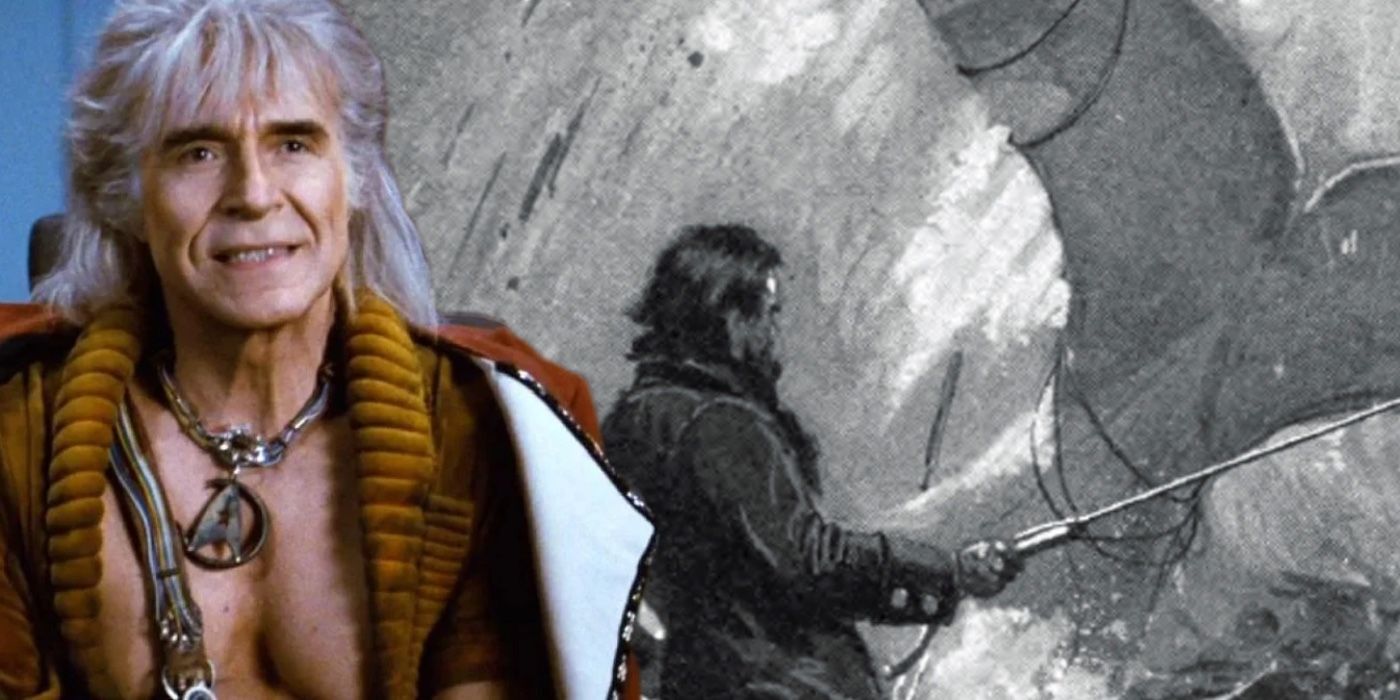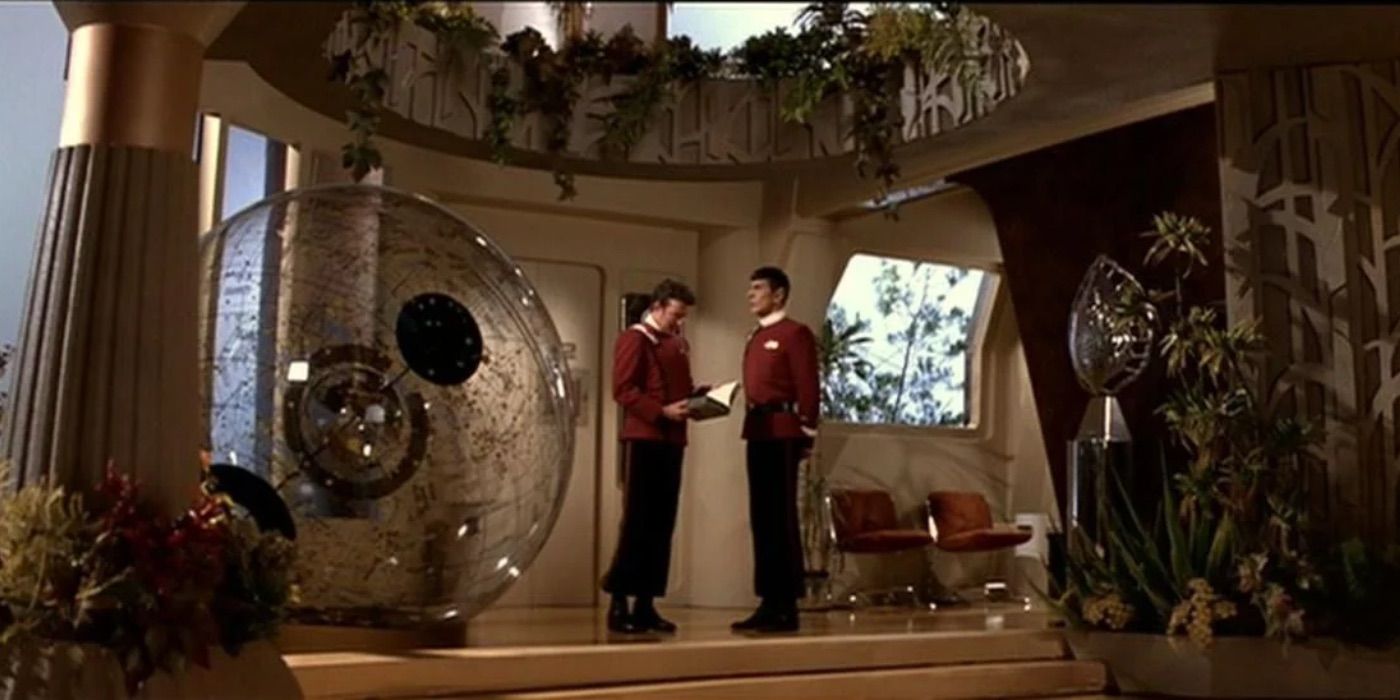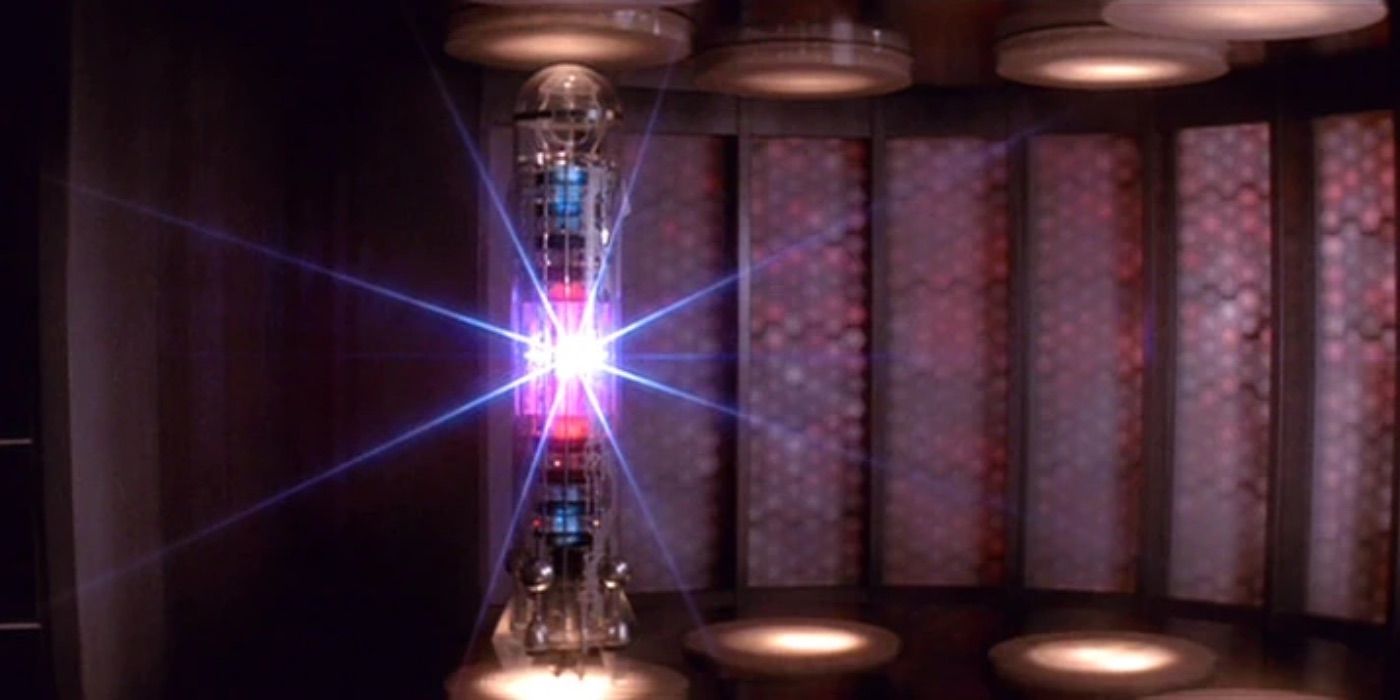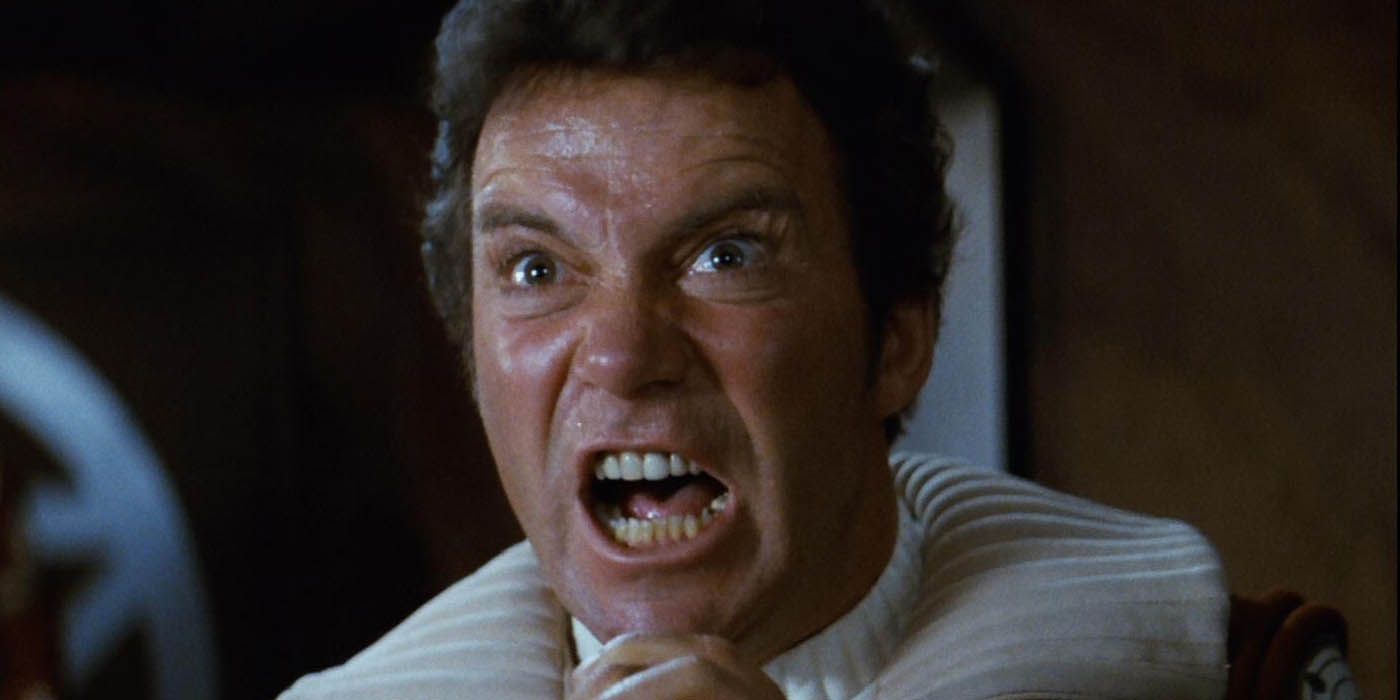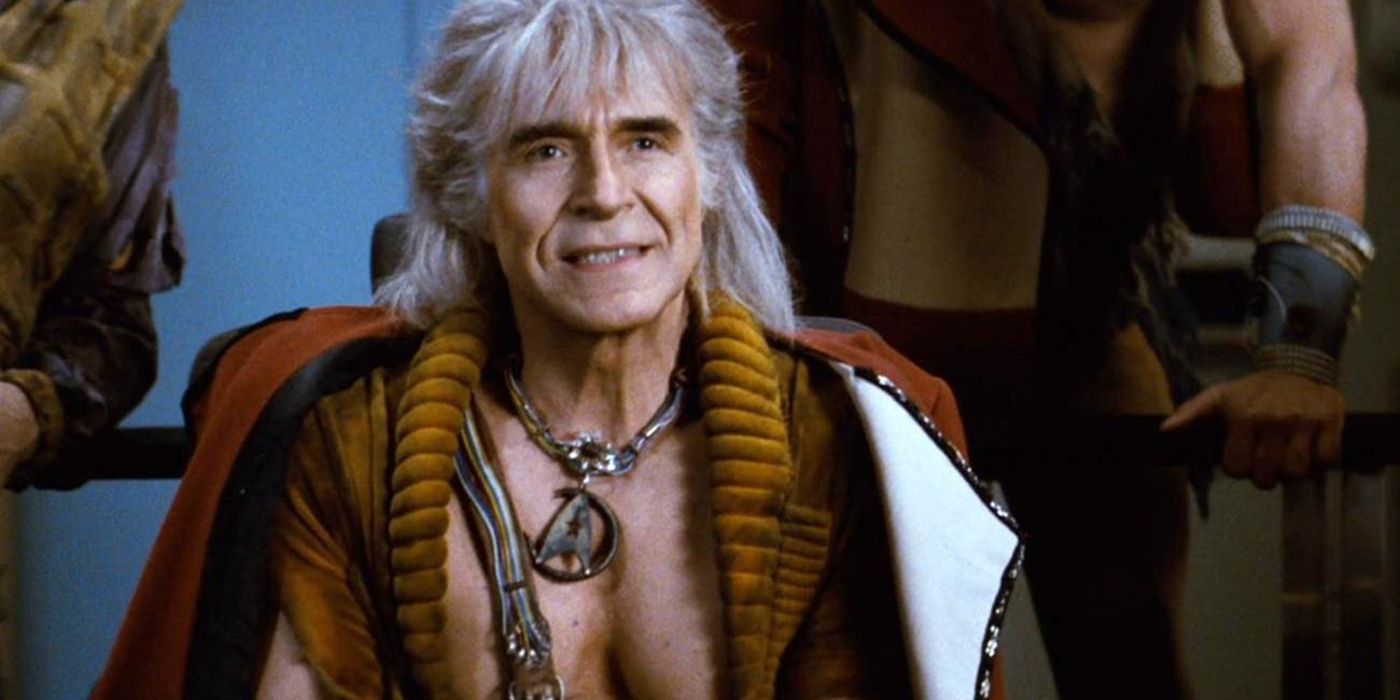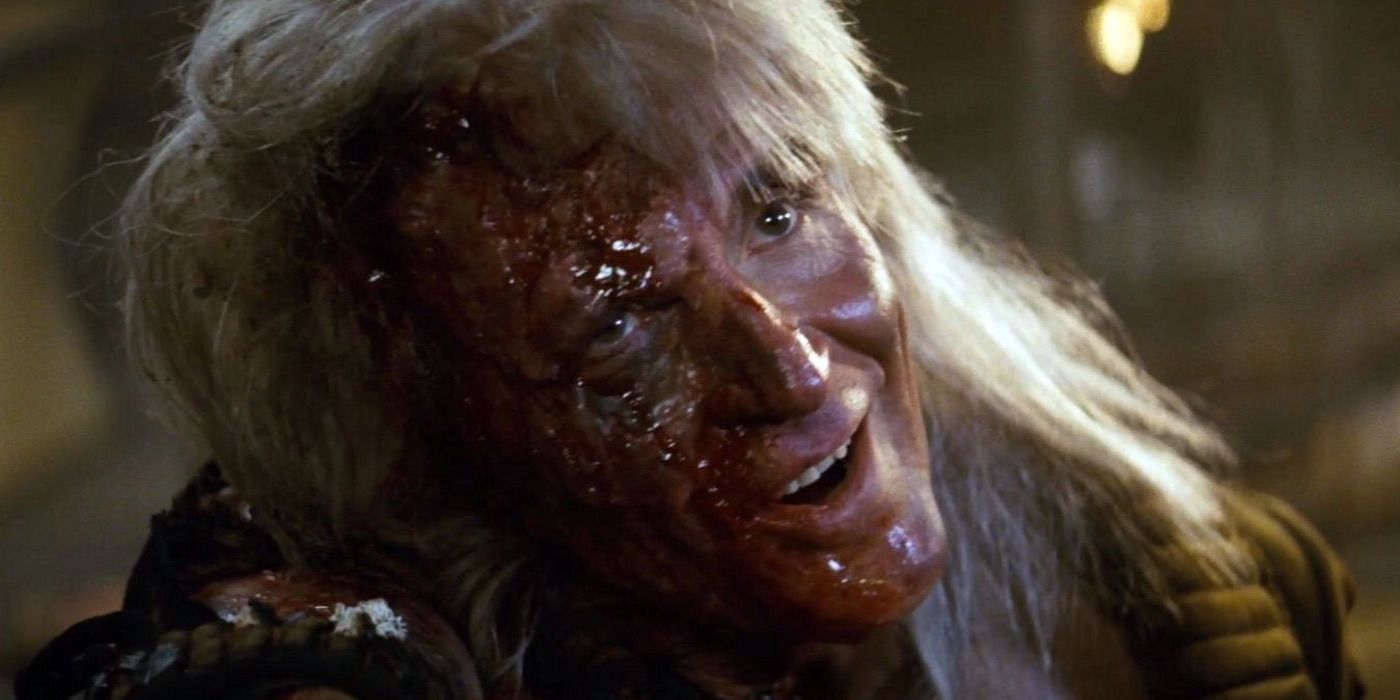Besides being one of the best Star Trek movies in the franchise, Star Trek II: The Wrath of Khan also made heady references to classic literature. Released in 1982, The Wrath of Khan was an obvious evolution of the Star Trek franchise and took the characters to new heights through its clever storytelling. Its plot showed the growth and maturity of the beloved Enterprise crew and took risks that most franchise sequels wouldn't. It transcended even the Star Trek label and became one of the best science fiction epics of all time because of its dense themes and brilliantly crafted script.
Instead of simply pulling from literature and leaving it be, the movie cleverly weaves the books themselves into the film and acknowledges the sources of many of its references through quotes and even by showing the books on screen. With other Star Trek movies often copying Wrath of Khan, the importance of the sequel can't be overstated, as the story implications have had a ripple effect on the entire timeline. By incorporating classic literature, Star Trek: The Wrath of Khan elevated itself into a piece of art while mirroring Kirk's complicated hero's journey with the arcs of the characters featured in the cited works.
5 A Tale Of Two Cities By Charles Dickens
Charles Dickens's dense historical epic A Tale of Two Cities is intricately tied to Kirk and Spock's storyline in Star Trek: The Wrath of Khan, and it's used deftly by the writers to show the latter's own thought process on his death. Gifted to him by Spock at the beginning of the movie, the 1859 novel follows Kirk throughout his tragic encounter with Khan, and he doesn't realize it until the bitter end. He reads the opening line, "It was the best of times, it was the worst of times," and the importance seems to miss him as he laments growing older.
A Tale of Two Cities is about a man who sacrifices himself to the guillotine in order to save his friends, and a similar plot development comes about through Spock's heroic death in The Wrath of Khan. Spock's gifting of the book seems to suggest he knew his former captain would soon learn of the fragility of life, and it's obvious that Kirk gets the message by the end. Kirk even brings up Dickens's haunting quote "It is a far, far better thing I do than I have ever done before," showing that he recognizes that the book is meant as a comfort for him to cope with Spock's death.
4 The Holy Bible
The Christian Bible plays a peripheral part in Star Trek: The Wrath of Khan, and it's seen on the title character's bookshelf inside the Botany Bay. Considering Khan's close connection with the works of John Milton and Paradise Lost specifically, it's clear that he focuses on the story of Lucifer and the angel's fall from heaven. Though he gets more in-depth with Paradise Lost, there's no denying that Khan sees much of Lucifer in himself, and his own fall from grace is an impetus for his path of vengeance against Kirk. Other Biblical references include Project Genesis, which is the inciting incident for the movie.
3 King Lear By William Shakespeare
Loose movie adaptations of William Shakespeare's plays have always been a Hollywood staple, but Star Trek: The Wrath of Khan's take on King Lear is one of the most clever inclusions. Unlike other literary references in the movie that only encapsulate one character, King Lear actually represents both Kirk and Khan in their own ways, and it brings them together despite being enemies. Khan's quest for revenge borders on absolute madness, and Kirk reflects the aged leader who has been shielded from the consequences of his actions for too long. Though there's more of King Lear in Khan than in Kirk, the resemblance is nevertheless uncanny.
First performed in 1606, the play follows the titular King as he goes mad while trying to root out the members of his family who aim to bring down his lengthy rule. Khan is right to hate Kirk, and yet Kirk is the victim of circumstance who has been shielded from consequence by others, not necessarily himself. Though other literary references more closely relate to each of the adversaries, King Lear's collapse is seen in Kirk's total emotional rebirth and in Khan's self-destructive desire to bring down his nemesis. Khan is even a despotic ruler in his own time, not unlike King Lear's reign in the play.
2 Paradise Lost By John Milton
John Milton's epic poem Paradise Lost had connections to Star Trek long before The Wrath of Khan and is even mentioned at the end of Star Trek season 1, episode 22, "Space Seed," the story that first introduces Khan. Besides being one of the best Star Trek: The Original Series episodes, "Space Seed" is rich with symbolism from the 1667 poem, and Kirk cites the notorious "better to reign in Hell" line in response to Khan's new digs on Ceti Alpha V. Khan's obsession with the poem is an obvious motivator, and though he never quotes it chapter and verse, he models himself after the tragic hero of Milton's Lucifer.
Expanding upon the Biblical tale of the angel Lucifer's expulsion from heaven, Milton's work paints the future devil as a hero with a tragic background in the view of later critics, though his actual designs for the character were unknown. Like all great villains, Khan views himself as the hero of his own story, and he considers Kirk to be the vicious god who expelled him to a planet that became a nightmare. Kirk's entire Star Trek timeline is filled with examples of him cheating death, but the return of his own personal Lucifer finally shows him consequences in the form of the ultimate sacrifice of his best friend.
1 Moby-Dick By Herman Melville
Star Trek II: The Wrath of Khan's references to Moby-Dick are anything but subtle, but the movie finds a way to perfectly utilize Herman Melville's controversial narrative. Making his intentions clear throughout the story, Khan actually quotes the 1851 novel on several occasions and even uses his last dying breath to invoke one of its most moving passages. "From hell's heart, I stab at thee," is so much more than Khan showing off his well-read vocabulary, but instead succinctly encapsulates how he views Kirk and the situation he's been living in for years on Ceti Alpha V. The parallels are on-the-nose, but powerful nonetheless.
The best revenge movies often take a page from Melville's legendary story of Captain Ahab's deadly quest to slay the white whale, and it's become an archetype in the centuries since its release. Khan obviously read the book many times while marooned, and yet he still chooses to recreate its narrative despite the gruesome fate that Ahab eventually meets. In that fact, Star Trek: The Wrath of Khan's audience learns all they needed to know about the classic Star Trek villain because he is willing to die if he can just take from Kirk what had been taken from him, and hurt the white whale just a little.

